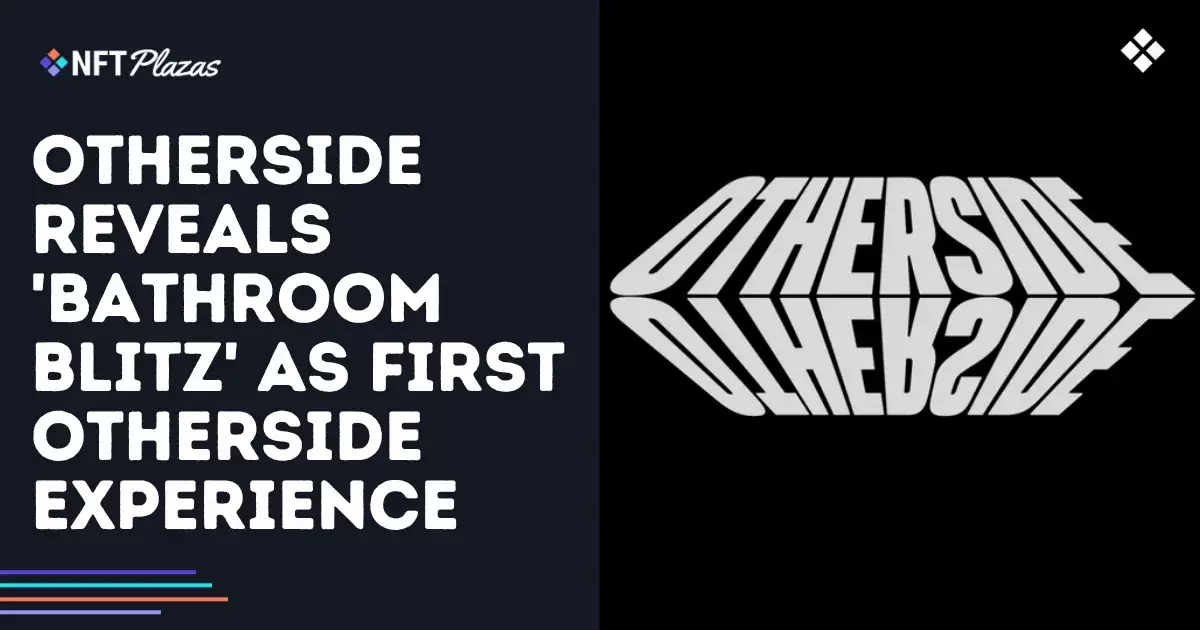Yuga Labs’ latest push into the NFT gaming space with *Bathroom Blitz* might seem like an exciting leap forward on the surface — a fast-paced multiplayer shooter set within the stylized confines of the BAYC bathroom. But beyond the SFX and BAYC themes lies an experience that feels more like a flashy stunt than a genuine innovation in metaverse gaming. Promoted as Otherside’s first persistent, always-on virtual environment, *Bathroom Blitz* rallies its 8v8 gameplay and hyper-stylized setting as key draws, yet it risks alienating players unfamiliar or uninterested in the BAYC subculture. In trying to merge NFT culture deeply with gameplay, Yuga Labs might be prioritizing brand affiliation over crafting a sustainable, engaging game experience that appeals beyond the niche crypto-enthusiast bubble.
Persistent World Ambitions Clashing With Shallow Gameplay
Otherside as a platform has been gradually building up toward long-term virtual spaces, and *Bathroom Blitz* is its supposed litmus test. Yet the choice of a bathroom as a setting—complete with “miniature” scale and cartoonish combat—raises eyebrows about the seriousness of these ambitions. Persistence in gaming requires deep, evolving content and meaningful player investment. Relegating the first flagship experience to a whimsical shooter inside a bathroom weakens the credibility of Otherside’s promise to support “live virtual spaces.” This juvenile setting, while coherent with the BAYC humor, undercuts what could have been a genuine attempt at creating immersive social and gaming environments that hold up beyond novelty. The risk is Otherside becoming another platform with flashy facade but shallow substance.
Voyager XP: A Clumsy Attempt at Engagement Mechanics
The introduction of the Voyager XP system sounds promising at first glance—a progression metric tracking player activity across the platform, intending to reward engagement. However, loyalty programs centered on mere “participation” have been tried ad nauseam in gaming and web3 projects, often failing to generate lasting player retention. XP that only rewards time-in-game rather than skill or meaningful contribution tends to breed monotony and resentment, inflating engagement numbers without cultivating genuine communities. Unless Yuga Labs uses this system smartly to encourage compelling player interaction and meaningful achievements, Voyager XP risks becoming just another superficial metric to appease investors rather than gamers.
Scaling Social Hubs With Quantity, Not Quality
The redesign of the social hub, rebranded as “Meet Me at the Clubhouse” with a capacity jump from 100 to 500 users, represents a scaling effort that is quantity-focused instead of quality-centered. While upscale capacity is necessary for metaverse ambitions, sheer numbers mean little without robust moderation, interactional tools, and genuine community-building mechanics. The addition of deeplinks and chat “Bubbles” is an expected, even rudimentary, feature in 2024’s social tech. However, without substantive improvements in user experience or moderation—areas notoriously challenging in decentralized environments—such expansions risk turning the Clubhouse into a noisy, chaotic space rather than a thriving, valuable social hub.
Asset Saturation and Creator Tools: Democratization or Dilution?
Making nearly 1,000 in-game assets available from different Otherdeed biomes and granting creators the ability to produce stickers, emotes, and custom objects certainly seems like a democratizing move to support user-generated content. Nevertheless, flooding the platform with a deluge of assets risks diluting thematic consistency and overwhelming the digital ecosystem. While built-in royalties for creators are an elegant feature to incentivize participation, the emphasis on content monetization may morph Otherside into a fragmented marketplace prioritizing profit over coherent gameplay and social experience. The delicate balance between empowering creators and maintaining a polished, inviting environment is easily lost when quantity overshadows quality.
A Premature Push That Reflects Broader Challenges in NFT Gaming
More broadly, *Bathroom Blitz* reflects the persistent challenges facing NFT gaming projects attempting to transition from speculative digital asset platforms to bona fide interactive entertainment ecosystems. Yuga Labs’ strategy seems overly focused on incremental feature rollouts to validation-test infrastructure, rather than first ensuring compelling, well-rounded gameplay or real player-driven social dynamics. This cautious but rushed approach may endanger their long-term goal of a thriving metaverse, as users grow increasingly wary of superficial NFT integrations that fail to back up hype with substance. As Otherside readies more releases like *Otherside Outbreak* and expanded creation tools, Yuga Labs must confront whether their metaverse vision truly prioritizes player experience over brand signaling—without this, their grand ambitions risk looking like hollow spectacle.
















Leave a Reply